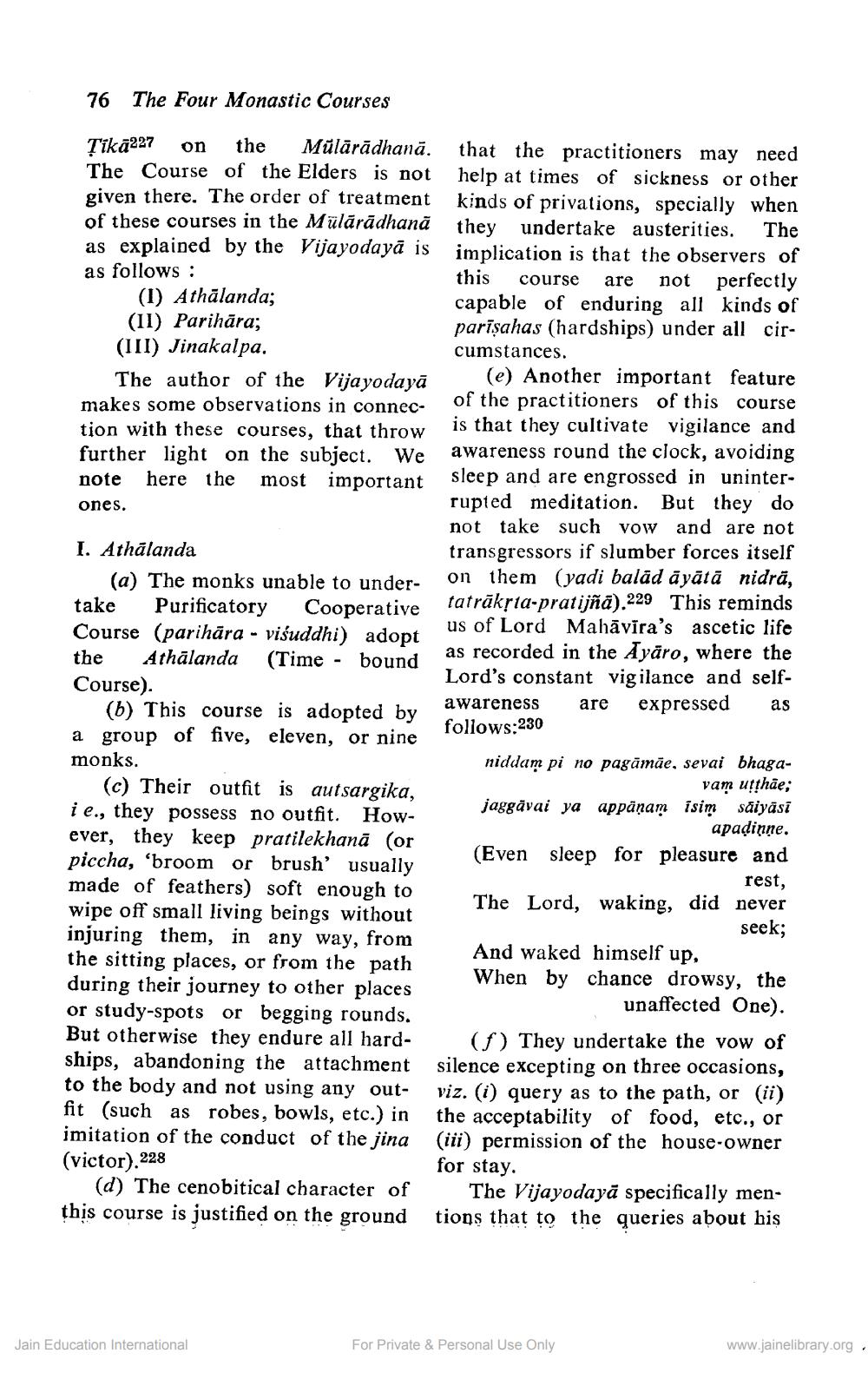________________
76
The Four Monastic Courses
Tikā227 on the Mulārādhanā. that the practitioners may need The Course of the Elders is not help at times of sickness or other given there. The order of treatment kinds of privations, specially when of these courses in the Mülārādhanā they undertake austerities. The as explained by the Vijayodayā is implication is that the
implication is that the observers of as follows:
this course are not perfectly (1) Athālanda;
capable of enduring all kinds of (II) Parihāra;
parīşahas (hardships) under all cir(III) Jinakalpa,
cumstances. The author of the Vijayodayā
(e) Another important feature makes some observations in connec
ne of the practitioners of this course tion with these courses, that throw
is that they cultivate vigilance and further light on the subject. We awareness round the clock, avoiding note here the most important sleep and are engrossed in uninterones.
rupted meditation. But they do
not take such vow and are not I. Athālanda
transgressors if slumber forces itself (a) The monks unable to under
on them (yadi balād āyātā nidrā, take Purificatory Cooperative
tatrāksta-pratijñā).229 This reminds Course (parihāra - visuddhi) adopt
us of Lord Mahāvīra's ascetic life the Athālanda (Time - bound
as recorded in the Ayāro, where the Course).
Lord's constant vigilance and self(6) This course is adopted by
awareness are expressed as
follows:230 a group of five, eleven, or nine monks.
niddam pi no pagāmāe, sevai bhaga(c) Their outfit is autsargika,
vam utthae; ie., they possess no outfit. How
jaggävai ya appāņam isim sãiyasi ever, they keep pratilekhanā (or
apadinne. piccha, 'broom or brush' usually
(Even sleep for pleasure and made of feathers) soft enough to
rest, wipe off small living beings without
The Lord, waking, did never
seek; injuring them, in any way, from
And waked himself up, the sitting places, or from the path
When by chance drowsy, the during their journey to other places
unaffected One). or study-spots or begging rounds. But otherwise they endure all hard
They undertake the vow of ships, abandoning the attachment silence excepting on three occasions, to the body and not using any out- viz. (i) query as to the path, or (ii) fit (such as robes, bowls, etc.) in the acceptability of food, etc., or imitation of the conduct of the jina (iii) permission of the house-owner (victor). 228
for stay. (d) The cenobitical character of The Vijayodayā specifically menthis course is justified on the ground tions that to the queries about his
Jain Education International
For Private & Personal Use Only
www.jainelibrary.org




